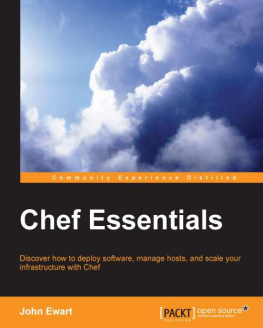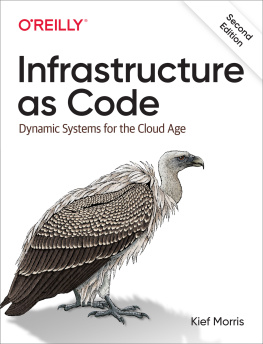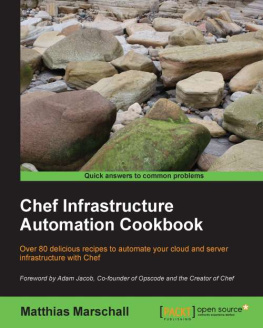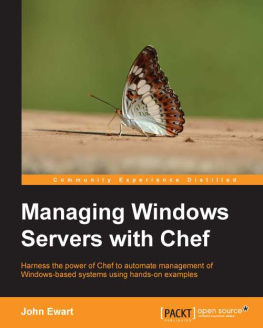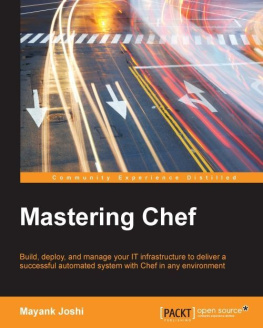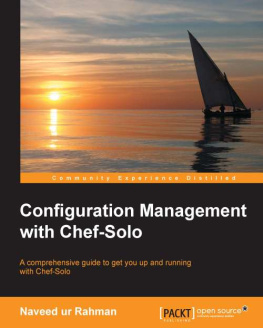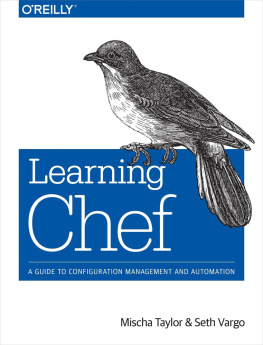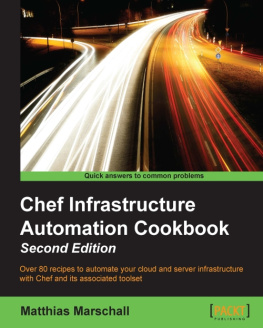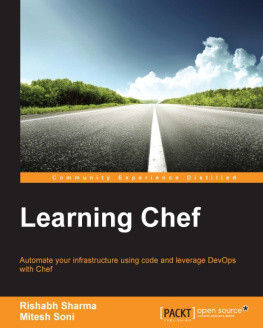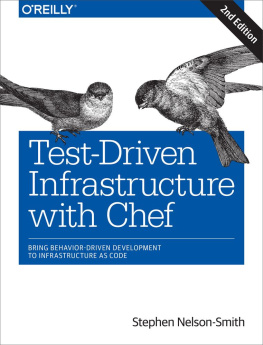About the Reviewers
Joshua Black has been working with computers professionally for 20 years. He has a wide range of experience and expertise, which includes systems and network administration, mobile app development, and production web applications. He earned a BS degree in Computer Science with a minor in Math from California State University, Chico, in 2005. He currently resides in Chico, California, with his wife, Rachel, and their four children.
Lauren Malhoit has been in the field of IT for over 10 years and has acquired several data center certifications. She's currently a technical virtualization architect, specializing in virtualization and storage in data center. She has been writing for a few years for TechRepublic, TechRepublic Pro, and VirtualizationSoftware. As a Cisco Champion, EMC Elect, VMware vExpert, and PernixPro, she stays involved in the community. She also hosts a bi-weekly technology podcast called AdaptingIT (http://www.adaptingit.com/). She has been a delegate for Tech Field Day several times as well. She recently published her first book, VMware vCenter Operations Manager Essentials , Packt Publishing .
Eric Maxey has a varied background in writing software, including making console video games and analyzing the ad revenue data. He ran a small business that pioneered a new kind of bitcoin mining pool, which has now become something of a standard. When not jacked into the metaverse, he likes to work on electric bicycles and ride them offroad.
www.PacktPub.com
Support files, eBooks, discount offers and more
You might want to visit www.PacktPub.com for support files and downloads related to your book.
Did you know that Packt offers eBook versions of every book published, with PDF and ePub files available? You can upgrade to the eBook version at > for more details.
At www.PacktPub.com, you can also read a collection of free technical articles, sign up for a range of free newsletters and receive exclusive discounts and offers on Packt books and eBooks.
http://PacktLib.PacktPub.com
Do you need instant solutions to your IT questions? PacktLib is Packt's online digital book library. Here, you can access, read and search across Packt's entire library of books.
Why Subscribe?
- Fully searchable across every book published by Packt
- Copy and paste, print and bookmark content
- On demand and accessible via web browser
Free Access for Packt account holders
If you have an account with Packt at www.PacktPub.com, you can use this to access PacktLib today and view nine entirely free books. Simply use your login credentials for immediate access.
Preface
Chef is an indispensable tool to manage your infrastructure. It consists of a set of tools that are designed to work together to enable you to model and manage your systems. This is a large space to fill, and Chef provides you with the tools to do this in a very flexible and powerful way. It achieves this through a combination of services, end host agents, a web interface, and command-line tools that work in unison to deliver an incredible suite of tools.
Chef's services are responsible for storing, managing, and distributing data about your infrastructure through an API. Endhost software agents that run on nodes (managed systems) are responsible for performing updates to systems, and the web interface, along with command-line tools, allows an administrator to edit and consume information that is vended by the API service.
One of the most attractive features of Chef is that you can leverage its API to easily integrate existing tools, or you can develop new tools to meet specific needs. Any organization with a moderate number of developer resources can harness the power of Chef to manage their systems. For example, one can easily build software to import data from Chef into a reporting tool of some form and dynamically reconfigure infrastructure based on a third-party tool's outputthe sky's the limit. This is incredibly valuable to anybody who has an existing infrastructure because it provides a convenient path to integrate Chef into their environment.
There are a number of ways to access Chef. The quickest way for a single user to manage his/her infrastructure (virtual machines, a handful of hosts, and so on) is to use Chef-solo, a product geared towards single-user environments. In a small environment, setting up a hosted server is a good way to manage infrastructure automation among team members. If you need to, you can configure the hosted environment as a highly available system using load balancers and other technologies. Alternatively, if hosting the service yourself is not an option, you can use hosted Chef, a software-as-a-service (SaaS) model, thus paying for access to a hosted service.

